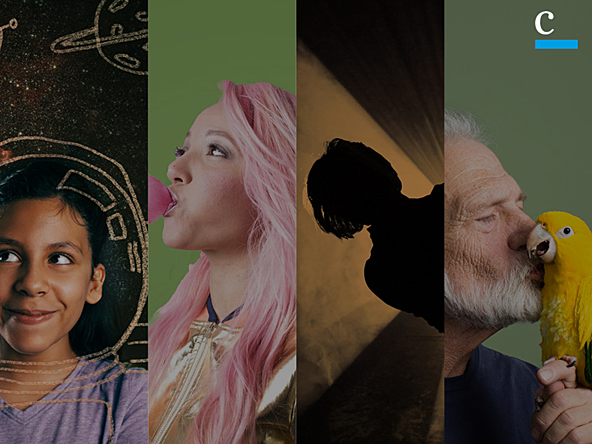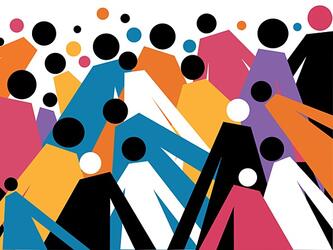Are you ready for the Relationship Economy?

- Participation (developing for, and with, the people the brand serves)
- Agility (keeping on top of the ever-evolving needs of customers)
- Direction (being truly aligned to who and what they’re for)
Since the first BGB ranking was published over two decades ago, there’s been a pretty drastic shift. Back then, business orthodoxy meant competing on more functional advantages (price, product, promotion, distribution). But now, in an era of globalization, disruption and digitalization, the biggest shifts are driven by what people expect of brands.
MeToo, The Cost Of Living Crisis, The Greta Effect. What started as localized, one-off events, have turned into global movements that have profoundly affected the tradeoffs consumers are willing make. Expectations, simply, are much higher and for brands to win in this environment, they need to learn to give, as much as they seek to get.
Our hypothesis is that we’re on the cusp of a new phase in business. In the Relationship Economy, customers (and employees) will seek out brands that feel invested in them. For businesses, brand-customer relationships will become the most important source of competitive advantage.
But relationships are difficult. They take time to build, and graft to maintain. They demand compromises, lateral thinking, bravery. So what does that actually look like?
Knowing who you’re really for
Brands need to place their bets carefully and confidently: connecting with customers who matter most in the way they want to connect. When Nike backed Colin Kaepernick, in the face of commentariat criticism, they knew who they were really backing – their next generation, values-driven, customers. And it worked.
Showing up where it really matters
Short-termism is a structural reality, but it’s the kiss of death for sustainable relationships. When Apple took a stance on privacy, they took a short-term hit, but gained long-term trust from customers in an area that really mattered. No wonder they’re the world’s #1 brand yet again.
Reimagining the value exchange
Relationship thinking means a more mutually valuable experience. Disney’s core promise, making the mundane magical, shows up in tiny ways (the daily store opening ceremony, magic bands…), but also in the way they keep diversifying, broadening the relationship: from film to parks to retail to cruise and now Disney +.
Embedding relational intelligence
Brands who align their operations, measurement, processes and people around what matters to customers as well as to them, who learn to operationalise empathy, stay relevant longer. At IKEA, the commitment to “a better everyday life for the many people”, is manifested contractually: employees have to spend time in-home every year.
Now it’s tempting to think that cutting back, at a time when we’re entering yet another global recession, on the back of a global pandemic, war in Ukraine, and more, would be the prudent step. And businesses will have to. But where to cut?
So here’s our perspective: erode your relationships, run down the emotional tank, run up the deficit on your trust account, but do it at your peril. When consumers start cutting back, where do you think they’ll be cutting first? The brands that thrive not just survive will be those that invest in their most valuable relationships, strategically, intentionally and confidently.
The Better Why Conference & Awards
We’ve always known that relationship thinking would run up against internal challenges for insight teams, which is why we set up The Better Why conference and awards. More on the awards in a second, but across a series of workshops this year, co-creating with leaders, we identified 4 opportunities for insights.
- Be a connector: developing intuition and empathy. It’s all about understanding who you’re for, now and next, and making investments in relationships where they really count. The connector’s a revenue generator, not a cost.
- Be an investigator: make sure you’re solving the right problems, the moments and jobs that matter most, so you can plot a course to mutual growth. The investigator helps set the strategic direction for the relationship.
- Be a creator: embedding insight into the ‘value-creation organisation’. Relationship-focused, the creator designs and optimises better daily interactions and experiences. Inventing new products, services, and experiences.
- Be an activator: inspiring your business to be better. Changing what they do, not just what they know, through storytelling, synthesis, creating tools and driving culture change. The activator makes it real.
The Better Why Winners
Our awards celebrate brands living up to these roles. Last year, Logitech, Merck, MARS, McDonalds and ATB Financial were winners and became this year’s judges.
- Meet the connector: BET network won the award for The Better Why Overall Champion for fielding a year long, multistage research project to understand Black American news consumption which informed BET’s news strategy.
- Meet the investigator: Otsuka for winning the Customer Relationship award for their patient-first approach to identify unmet needs which shaped the prototype of new digital solutions.
- Meet the creator: Global Hotel Alliance won our ‘Future Back’ award for ‘DISCOVERY 2025’ a co-creation and foresight programme that convinced the 30 member brands to sign up to break rules in the travel loyalty space.
- Meet the activator: Liberty Global won our Insights Inclusivity award for an ethnographic approach, working with people living with disability, to identify barriers to access for all, which ultimately drove a more inclusive design culture.
So, are you ready for the Relationship Economy?
Find out how strong your relationships are, take our test here and to be part of next year’s co-creation and The Better Why conference and awards, sign up here.

We hope you enjoyed this article.
Research Live is published by MRS.
The Market Research Society (MRS) exists to promote and protect the research sector, showcasing how research delivers impact for businesses and government.
Members of MRS enjoy many benefits including tailoured policy guidance, discounts on training and conferences, and access to member-only content.
For example, there's an archive of winning case studies from over a decade of MRS Awards.
Find out more about the benefits of joining MRS here.














0 Comments